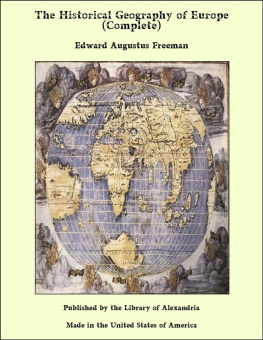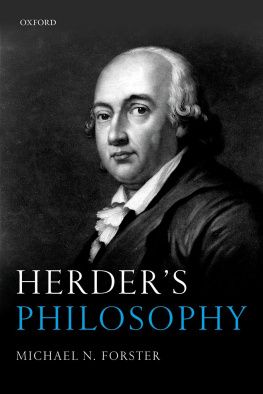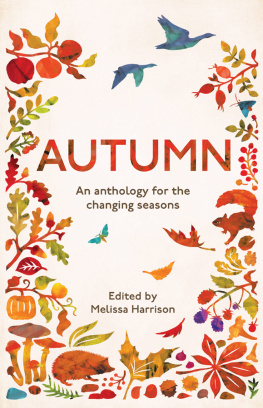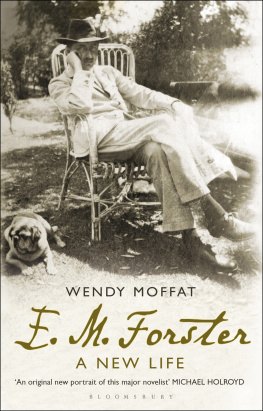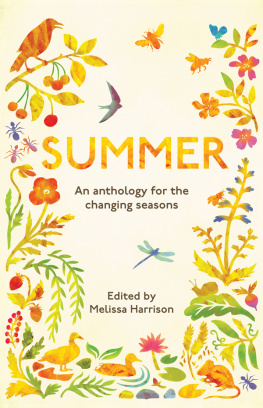PREFACE.
This book consists of two parts: a History and a Guide.
The History attempts (after the fashion of a pageant) to marshal the activities of Alexandria during the two thousand two hundred and fifty years of her existence. Starting with the heroic figure of Alexander the Great, it inspects the dynasty of the Ptolemies, and in particular the career of the last of them, Cleopatra; an account of Ptolemaic literature and science follows, and closes this splendid period, to which I have given the title of Greco-Egyptian. The second period, called Christian, begins with the rule of Rome, and traces the fortunes of Christianity, first as a persecuted and then as a persecuting power: all is lost in 641, when the Patriarch Cyrus betrays Alexandria to the Arabs. An interlude comes nextThe Spiritual Citywhich meditates upon Alexandrian philosophy and religion, both Pagan and Christian: it seemed better to segregate these subjects, partly because they interrupt the main historical procession, partly because many readers are not interested in them. History is resumed in the Arab Period, which is of no importance though it lasts over 1,000 yearsfrom Amr to Napoleon. With Napoleon begins the Modern Period, the main feature of which is the building of the city we now see under the auspices of Mohammed Ali; and the pageant concludes, as well as it may, with an account of the events of 1882, and with surmises as to future municipal developments.
The History is written in short sections, and at the end of each section are references to the second partthe Guide. On these references the chief utility of the book depends, so the reader is begged to take special note of them: they may help him to link the present and the past. Suppose, for instance, he has read in the History about the Pharos: at the end of the section he will find references to Fort Kait Bey where the Pharos stood, to Abousir where there is a miniature replica of it, and to the Coin Room in the Museum, where it appears on the moneys of Domitian and Hadrian. Or again, suppose that the tragic fate of Hypatia has touched him: at the end will be references to the Caesareum, where Hypatia was murdered, and to the Wady Natrun, where the monks who murdered her generally resided. Or the British victories of 1801: he will be referred to the country over which our troops marched, to the Abercrombie Monument at Sidi Gaber, and to a tombstone in the courtyard of the Greek Patriarchate. The sights of Alexandria are in themselves not interesting, but they fascinate when we approach them through the past, and this is what I have tried to do by the double arrangement of History and Guide.
The Guide calls for no introduction. It is written from the practical standpoint, and is intended to be used on the spot. Maps and plans accompany it. The city is divided into sections, the visitor in every case starting from the Square. Other sections deal with the environs, and with the surrounding country as far as Rosetta on the east and Abousir on the west. In transliterating Arabic names I have preferred the French system: there are three English systems, each backed by a rival government department, so the French seems the safer course, and if I have not kept to it rigidly, I am only following, though at a respectful distance, the example of the Alexandria Municipality. Here and there some History has crept into the Guidenotably in the case of Aboukir, whose fortunes, though dependent on Alexandrias, present features of their own.
AUTHORITIES.
There is, so far as I know, no monograph on Alexandria, and though the present little book makes no claim to original research, it has drawn together much information that was hitherto scattered. The following works, among others, have been consulted; those marked with an asterisk are published locally.
(A). History :
Ptolemaic Period: Bouch-Leclercq, Histoire des Lagides . A scholarly and delightful work. 4 vols.
Ptolemaic Literature: A. Couat, La Posie Alexandrine ; well written. Theocritus, translated A. Lang.
Christian Period:No satisfactory work. S. Sharpe, History of Egypt until the Arab Conquest, vol. 2 may be consulted; also Gibbon, chs. 21 and 47. Mrs. Butcher, The Story of the Church in Egypt is full of information, but uncritical and diffuse.
Arab Conquest:A. J. Butler, The Arab Conquest of Egypt. A monograph of the highest merit, brilliantly written and practically reconstructing the episode.
Jewish Thought:E. Herriot, Philon le Juif.
Neo-Platonism:Various works. There is a lucid introduction to Plotinus in S. McKenna, Translation of the Enneads, vol. 1; this admirable translation is still in progress. Porphyrys Letter to Marcella (translated, A. Gardner) is also interesting.
Christian Theology:See under Christian period. The Fathers can be read in the Ante-Nicene Christian Library.
Arab period:Too obscure to possess a history.
Napoleonic Wars:Mahan, Influence of Sea Power upon the French Revolution, chs. 9 and 10. R. T. Wilson, History of the British Expedition to Egypt. See also below, under Aboukir.
General Modern History:D. A. Cameron, Egypt in the Nineteenth Century. A well-written book by the late Consul General at Alexandria; contains good account of Mohammed Ali. The works of Lord Cromer, W. S. Blunt and Sir V. Chirol are also useful.
Events of 1882:C. Royle, The Egyptian Campaigns.
One or two novels and plays dealing with the History may here be mentioned. The career of Cleopatra has inspired two noble tragedies, Shakespeares Antony and Cleopatra, and Drydens All for Love; extracts from them are given on p.. Drydens masterpiece should be better known; it is most moving, admirably constructed, and contains some magnificent scenes. A novel by Pierre Loys , Aphrodite , also treats of the period, but in a scented Parisian way. Anatole France , Thais , pictures life in the 4th cent. A.D.; the details are both vivid and accurate, and build up a perfect work of art.For the early 5th cent. there is Charles Kingsleys Hypatia, a rousing yarn about the final contest between Paganism and Christianity; Kingsley is always readable, but his bluff burly mind was incapable of understanding Alexandria.Two good novels by Marmaduke Pickthall, Said the Fisherman and Children of the Nile touch upon events in the modern period.
(B). Guide .:
*E. Breccia, Alexandrea ad Aegyptum. In French: English translation announced. Deals mainly with Classical Antiquities. Two sectionsthe first dealing with the remains in the city and environs, the second with the Greco-Roman Museum, of which Professor Breccia is the distinguished Curator. I am under much obligation to this fine scholarly book, especially in the following sections:Greco-Roman Museum, Catacombs of Anfouchi and Kom es Chogafa, Serapeum, Abousir.



